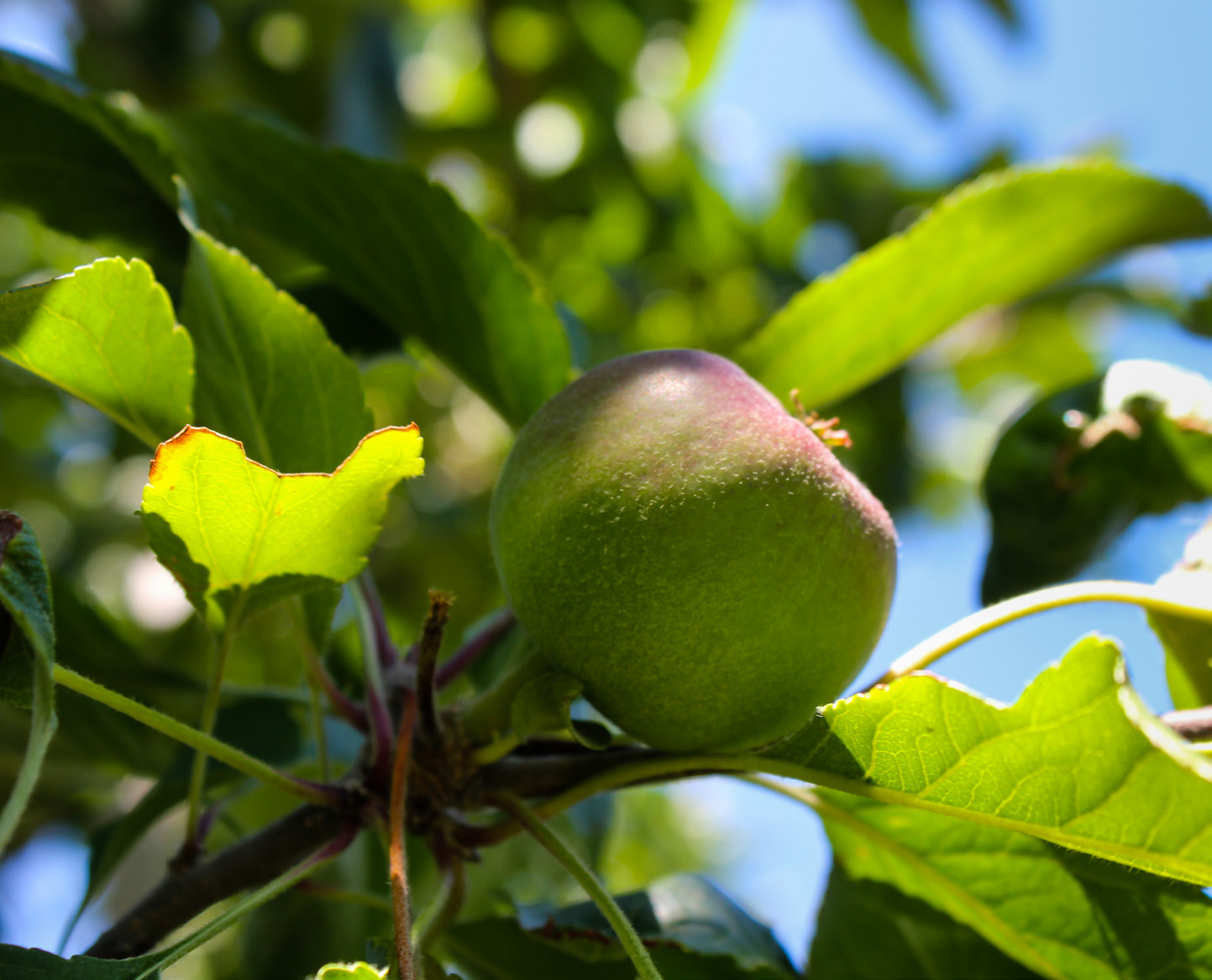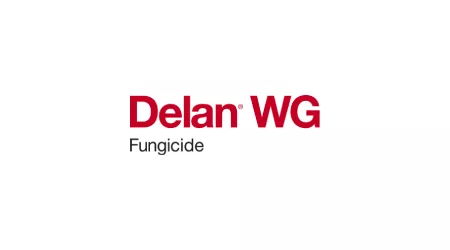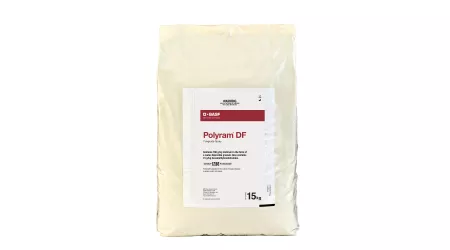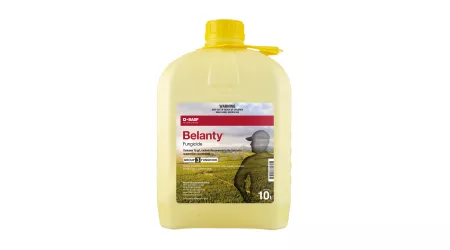Pipfruit growers will probably have heard reports of severe restrictions on the use of Polyram® DF and other dithiocarbamate fungicides that had been proposed in the European Union and were likely to be voted in. At the eleventh hour, the EU did not vote on the change, so maximum residue levels will remain at 0.7 mg/kg for this coming season.
Tim Herman, Senior Technical Services Specialist – Crop Protection for BASF New Zealand Ltd, says, “This was great news and apple growers will be relieved that it’s ‘business as usual’ for Polyram this season. They can stick with their normal black spot spray programme, with Polyram doing the heavy lifting and Delan® WG playing a supporting role to Polyram.”
Both Polyram and Delan have multi-site activity and protectant action, which makes them much less susceptible to resistance than fungicides that are only active at a single site. Tim says that makes them particularly important and suggests that growers who haven’t used Delan much or at all up until now may want to consider adding it to their programmes. He’s confident they will be impressed by its reliable effectiveness. “Delan is into its fifth decade of use in Europe and testing1 has shown that V. inaequalis has not had any shift in sensitivity to dithianon despite such lengthy exposure. While the use of Polyram can continue the time being, it is not guaranteed and the use of Delan is likely to expand.”
Tim says there are some straightforward management issues it’s important that first-time Delan users are aware of to make sure they get the best possible results.

Dithianon, the active ingredient of Delan WG, works by disrupting the formation of proteins and inhibiting enzymes needed for spore germination and germ tube growth. This gives Delan broad spectrum contact activity as a protectant fungicide. To be effective, Delan needs to be applied in front of weather favouring infection to protect foliage and fruitlets from the black spot pathogen, Venturia inaequalis, as well as Glomerella spp., the pathogen which causes bitter rot in apples.
One of Delan’s strengths is that it has good adherence to the surface of fruit and leaves when compared to the other multi-site protectant fungicides, making it more resistant to rain wash-off. However, it's important to monitor weather conditions and avoid applying Delan in cold, frosty or wet and slow-drying conditions from pink to second cover which is the period when russeting is most likely to occur. Small fruitlets don’t have a thick cuticle or epidermal wax layer and are at higher risk of damage.
Like various other agrichemicals, Delan has the potential to induce russeting on vulnerable fruit in those cold and/or wet conditions. Not that Delan is the major factor: research has shown that diathinon can actually reduce russeting by reducing the yeast populations on the fruit surface in some circumstances. And of course some cultivars are more susceptible to russeting than others.
Nevertheless, fruit russet is always a concern when preparing a spray programme, so it’s best to apply Delan in milder weather. A further option is to apply it at the lower rate of 11 grams per 100 litres in tank-mixtures with an effective DMI fungicide like Belanty® during the most russet-sensitive period. Delan is well suited as a tank-mix partner for single-site fungicides. In compatibility studies, Delan has been safely mixed with most products that may be applied to apples during its use period, which is from green tip right through the primary black spot infection period.
Now that we’re operating in a tighter regulatory environment and the use of key fungicides like Polyram may soon be more restricted, Delan has a more important role than ever to play in producing healthy crops. By following the label guidelines, including those around minimising the risk of russeting, growers can continue to benefit from Delan’s ongoing success story for many seasons to come.
Ref
1 Huf A, Rehfus A, Teichmann M, Randall GR, Stammler G. (2017) Sensitivity of Venturia inaequalis to Fungicides. In: Deising HB, Fraaije B, Mehl A, Oerke EC, Sierotzki H, Stammler G (Eds), "Modern Fungicides and Antifungal Compounds", Vol. VIII, pp. 197-198. Deutsche Phytomedizinische Gesellschaft, Braunschweig.
ACVM registration numbers: Belanty® #009798, Delan® #003507, Polyram® #002062. Read registered label before use.



